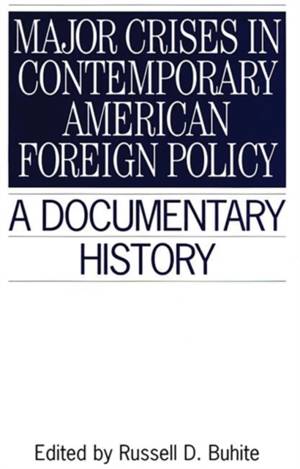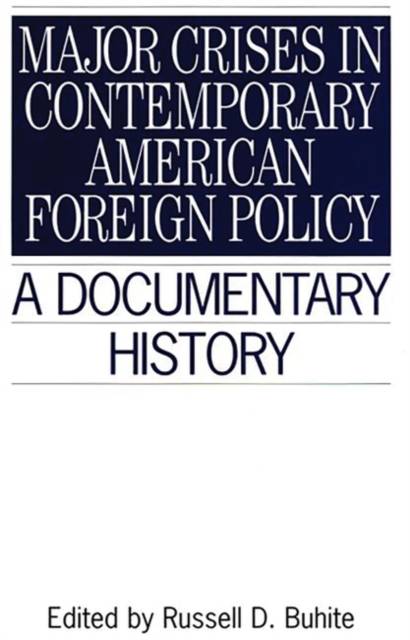
- Retrait gratuit dans votre magasin Club
- 7.000.000 titres dans notre catalogue
- Payer en toute sécurité
- Toujours un magasin près de chez vous
- Retrait gratuit dans votre magasin Club
- 7.000.0000 titres dans notre catalogue
- Payer en toute sécurité
- Toujours un magasin près de chez vous
Description
From the Cold War to the Persian Gulf War, the high drama of America's contemporary foreign policy crises comes to life in this collection of primary documents designed for use by high school and college students. The comprehensive work dramatizes, through memoirs and diaries of the major players as well as key public documents, eight major crises: The Origins of the Cold War, the Berlin Blockade of 1948-49, the Korean War, the Berlin Crises of 1958 and 1961, the Cuban Missile Crisis, the Vietnam War, the Iranian Hostage Crisis of 1979-80, and the 1991 Persian Gulf War with Iraq. The selection of documents for each crisis dramatizes the tension between the opposing nations and illuminates the process of decision-making by U.S. policymakers. Meticulously culled from a wide variety of sources and voices, many of the 382 documents are available in no other resource.
Following a general introduction on contemporary American foreign relations, each crisis begins with a narrative introduction and chronology of events. The story of each crisis unfolds through chronologically organized documents, each of which is preceded by an explanatory headnote. The section on each crisis concludes with a suggested reading list. Among the variety of voices heard are memoirs and official statements of every president from Truman to Bush, and memoirs, diaries, and reminiscences of key players including General Douglas MacArthur, Dean Acheson, Robert Kennedy, Henry Kissinger, Nikita Krushchev, Andrei Gromyko, the Shah of Iran, and Generals Norman Schwarzkopf and Colin Powell. The variety of documents includes government reports and policy statements, private correspondence and memos, laws, speeches, position statements of interest groups, treaties and agreements, CIA directives, and interviews with key players. This basic research tool provides students with a rich panoply of voices, viewpoints, and key public documents that illuminate a crucial period in American and world history.Spécifications
Parties prenantes
- Auteur(s) :
- Editeur:
Contenu
- Nombre de pages :
- 520
- Langue:
- Anglais
- Collection :
Caractéristiques
- EAN:
- 9780313294686
- Date de parution :
- 25-06-97
- Format:
- Livre relié
- Format numérique:
- Genaaid
- Dimensions :
- 156 mm x 234 mm
- Poids :
- 893 g

Les avis
Nous publions uniquement les avis qui respectent les conditions requises. Consultez nos conditions pour les avis.






